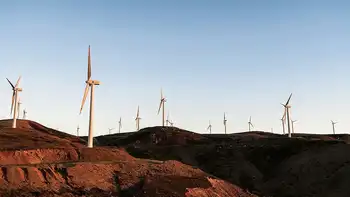Federal Coal Regulations Risk Being Tarnished
EDMONTON - - Just over a year ago, the federal government announced a plan to regulate greenhouse gas pollution from some of the dirtiest sources of energy in Canada -coal power plants. While the rules aren't scheduled to take effect for four years, the government promised to guard against any efforts to rush new plants into service ahead of their start date.
Now, a decision by an Alberta regulator to approve a new coal plant has put the ball squarely in the federal government's court to live up to that commitment. And so far, the signs aren't promising.
The story starts on June 23, 2010, when then-environment minister Jim Prentice announced that his government would adopt regulations to phase out conventional, or "dirty" coal plants. While the regulations would only apply new plants and those at the end of their economic lives, which is typically 45 years, improving those plants' performance could still be a welcome step.
Unfortunately, the government set the start date for their new rules as July 1, 2015 -a long wait at a time when we need to cut Canada's greenhouse gas pollution urgently. But Prentice offered a promise to reassure anyone worried about the delay: "We will guard against any rush to build non-compliant coal plants in the interim."
Fast-forward to Thursday, June 30, when many of us were heading out the door for a long weekend. The Alberta Utilities Commission AUC chose that moment to give its approval to a coal plant proposal from a company called Maxim Power Corp.
The plant would be located about 20 kilometres north of Grande Cache, and would emit more than three million tonnes of greenhouse gas pollution each year -the equivalent of adding 590,000 vehicles to the road.
Maxim's press release says the plant will use "state-of-the-art" technology to make it more fuel-efficient. The reality is that the technology they plan to use called "supercritical" would fail, by a significant margin, to meet the environmental performance standards that the federal government says it will require.
So Environment Canada's coal proposal is facing its first test case. The question now becomes how Ottawa will respond. Was the government's 2010 commitment serious? Or will the current environment minister, Peter Kent let this company and potentially others duck its responsibility to reduce pollution?
It turns out we're not the first ones to ask that question. Maxim Power met with federal officials to find out what the fate of the plant would be under the proposed new rules.
The company's lawyers summarized what they found out in a letter to the AUC dated June 7, 2011. The letter reports that Maxim "consulted" Kent and learned that their plant could be "accommodated" as an existing facility -and thus avoid facing the new standardsas long as it's up and running by July 1, 2015.
In other words, Maxim came out of the meeting with Kent convinced that, far from "guarding against" their plant, the environment minister had effectively encouraged them to get it built a.s.a.p.
The company asked Alberta's utilities regulator to forgo a public hearing to make sure it could hit that deadline, writing that "Maxim has no chance to complete the power plant expansion by July 1, 2015, unless it receives an approval from the AUC by June 30, 2011."
And June 30, that's exactly what the AUC granted them. The commission's decision notes that Maxim needed a verdict by June "to address the potential impact of pending federal carbon legislation on this plant."
Sorry, but rushing a new coal plant into service isn't "addressing" the proposed federal regulations. It's avoiding them. Sneaking this plant in under that wire would earn it a 45-year free pass to pollute -and risks giving "dirty" coal technology a place in Alberta's electricity mix as late as 2060.
Coal is a big source of greenhouse gas pollution: plants operating in Canada today still produce more emissions each year than the oilsands do.
In Alberta, coal generates the overwhelming majority of the province's electricity today. However, a Pembina Institute analysis shows that there are huge renewable energy opportunities in the province -opportunities that, when combined with the use of high-efficiency natural gas, remove the need to build any new coal plants.
The federal government could also choose to take a strong stand in reducing emissions from coal. That would start with effective regulations, but also requires clean energy investments and, over time, a rising price on emissions.
The Maxim approval raises questions about how serious Ottawa really is. The environment minister needs to be clear. Is he guarding against the construction of polluting new coal plants, or is he encouraging it?
We've written to Kent to ask for a review of Maxim's proposal. The government appears poised to publish the draft version of its coal regulations soon, which gives the environment minister a perfect opportunity to announce that he will indeed "guard against" this effort to get a non-compliant plant in under the wire.
So while the Maxim news was far from promising, the door isn't closed if Environment Canada does want to pass this first crucial test of its coal proposal.
And if there's silence from Ottawa on Maxim's plans? The federal government's shiny new coal regulations would be tarnished before they're even published.
Related News

Three Mile Island at center of energy debate: Let struggling nuclear plants close or save them
THREE MILE ISLAND - Three Mile Island is at the center of a new conversation about the future of nuclear energy in the United States nearly 40 years after a partial meltdown at the Central Pennsylvania plant sparked a national debate about the safety of nuclear power.
The site is slated to close in just two years unless Pennsylvania or a regional power transmission operator delivers some form of financial relief, says Exelon, the Chicago-based power company that operates the plant.
That has drawn the Keystone State into a growing debate: whether to let struggling nuclear plants shut down if they cannot…




